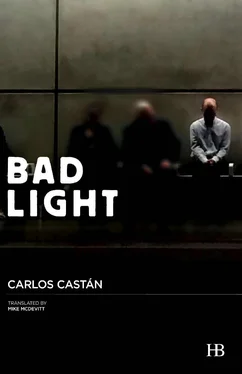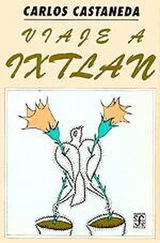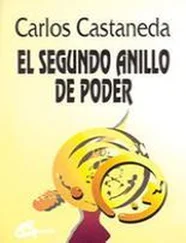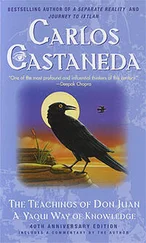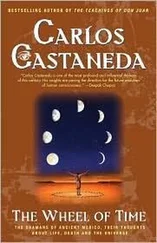Carlos Castán - Bad Light
Здесь есть возможность читать онлайн «Carlos Castán - Bad Light» весь текст электронной книги совершенно бесплатно (целиком полную версию без сокращений). В некоторых случаях можно слушать аудио, скачать через торрент в формате fb2 и присутствует краткое содержание. Год выпуска: 2016, Издательство: Hispabooks, Жанр: Современная проза, на английском языке. Описание произведения, (предисловие) а так же отзывы посетителей доступны на портале библиотеки ЛибКат.
- Название:Bad Light
- Автор:
- Издательство:Hispabooks
- Жанр:
- Год:2016
- ISBN:нет данных
- Рейтинг книги:5 / 5. Голосов: 1
-
Избранное:Добавить в избранное
- Отзывы:
-
Ваша оценка:
- 100
- 1
- 2
- 3
- 4
- 5
Bad Light: краткое содержание, описание и аннотация
Предлагаем к чтению аннотацию, описание, краткое содержание или предисловие (зависит от того, что написал сам автор книги «Bad Light»). Если вы не нашли необходимую информацию о книге — напишите в комментариях, мы постараемся отыскать её.
Carlos Castán
Bad Light
Bad Light — читать онлайн бесплатно полную книгу (весь текст) целиком
Ниже представлен текст книги, разбитый по страницам. Система сохранения места последней прочитанной страницы, позволяет с удобством читать онлайн бесплатно книгу «Bad Light», без необходимости каждый раз заново искать на чём Вы остановились. Поставьте закладку, и сможете в любой момент перейти на страницу, на которой закончили чтение.
Интервал:
Закладка:
All things considered, I think that in the end we never managed to be good for one another. Without wishing to, we dragged each other down into our respective pits, each drawn by the other’s darkness and the force of his eddies. We never truly knew how to help one another with what really mattered, instead we behaved like that pair of men drowning in the sea who, as they go under, cling so fiercely to their saviors, with arms and fingernails, that they end up dragging them down with them to the depths. Without saying a word, as if by instinct, we stopped seeing one another with such frequency, and tedium once again descended. This is how things stood in the months leading up to my departure from home, and so things remained thereafter, in the days of the apartment rented out in great haste, the brutal solitude, the lowered blinds, and the doors locked night and day, as if all those precautions served any purpose and shadows couldn’t pass through walls and pores.
2 (life back then)
And that, more or less, was what life back then was like, before the move. Frozen, deserted streets, a newly rented apartment with someone else’s furniture, silence, hours spent beneath the naked bulb on the living room ceiling, the pointlessness that seemed to have come to rest on things, slowly, much as a layer of dust forms without our noticing, taking possession of them, cloaking everything in a sort of grimy, drab gauze. That’s what the days of my life were like back then. The evenings at home, stunned. I sometimes sit down at the table to eat, without the slightest hunger. I am my own mother; I am, at one and the same time, the downcast young boy and the voice that tells him to try and cheer up, to pull himself together already, to look after himself, to swallow, even if he doesn’t feel like it, a few spoonfuls of rice, one more, you’ll feel better, you’ll see, I’ll feel better, I’ll see. I remember the fear I once was, made flesh, a bundle of nerves, and how I sensed my own presence much as one might perceive a tremor, the juddering of a worn-out heart that seemed to be shifting position constantly inside its chest, without ever finding the right spot. I see myself seated in the armchair next to the glass door that looks onto the balcony, wearing a coat buttoned up to my neck. I’m not sure if I can’t move or don’t want to. It’s hard to say; I don’t move, that’s all. I give a start at the slightest noise from the street or the stairway, the buzzing of the intercom whenever it’s pressed over and over again by the mailman or the junk mail distributors. And I remember the dread at the thought of losing my mind, of being unable to return, and also the odd snatch of the disjointed ramblings running through my thoughts, shot through with static and barking and stinging music and hazy questions — who took me away, and where to, I cannot sense myself here, in this voice that’s apt to start talking alone in the middle of the evening, uttering the names of people long gone, or in the hand that, almost without realizing it, scribbles these marks in delirious ink (words in the universal and equally baffling language of the shakes) that cannot be deciphered later, nor can I spot myself in these wretched lines that seek me out, that enquire nervously on the pages of a notebook after my wellbeing, my whereabouts, what I could possibly be up to at this hour, and where in God’s world and down what roads. And while I know that I am both the escaped prisoner running nonstop on wounded feet and the search party, armed to the teeth, that’s hunting me down and setting the pack of hounds on my trail, I do not recognize as my own the footsteps looking for me in damp hotels, and ports, down solitary streets, in unmade beds, in secluded bars (of the sort you only ever visit once, of the sort never to be found again, as if, on your departure, they sank into a fog that is not of this world). Nor do I see myself in the anguish calling out to me because it’s getting late and I’m nowhere to be seen, shouting a name that’s mine, or at least it once was. It calls the name out louder and louder, with a voice increasingly hoarse, until it is little more than a straight-out moan, roaming the passageways of the labyrinth, the banks of the swamp, the forests of the night — the wailing of a monster that remembers me.
Читать дальшеИнтервал:
Закладка:
Похожие книги на «Bad Light»
Представляем Вашему вниманию похожие книги на «Bad Light» списком для выбора. Мы отобрали схожую по названию и смыслу литературу в надежде предоставить читателям больше вариантов отыскать новые, интересные, ещё непрочитанные произведения.
Обсуждение, отзывы о книге «Bad Light» и просто собственные мнения читателей. Оставьте ваши комментарии, напишите, что Вы думаете о произведении, его смысле или главных героях. Укажите что конкретно понравилось, а что нет, и почему Вы так считаете.
